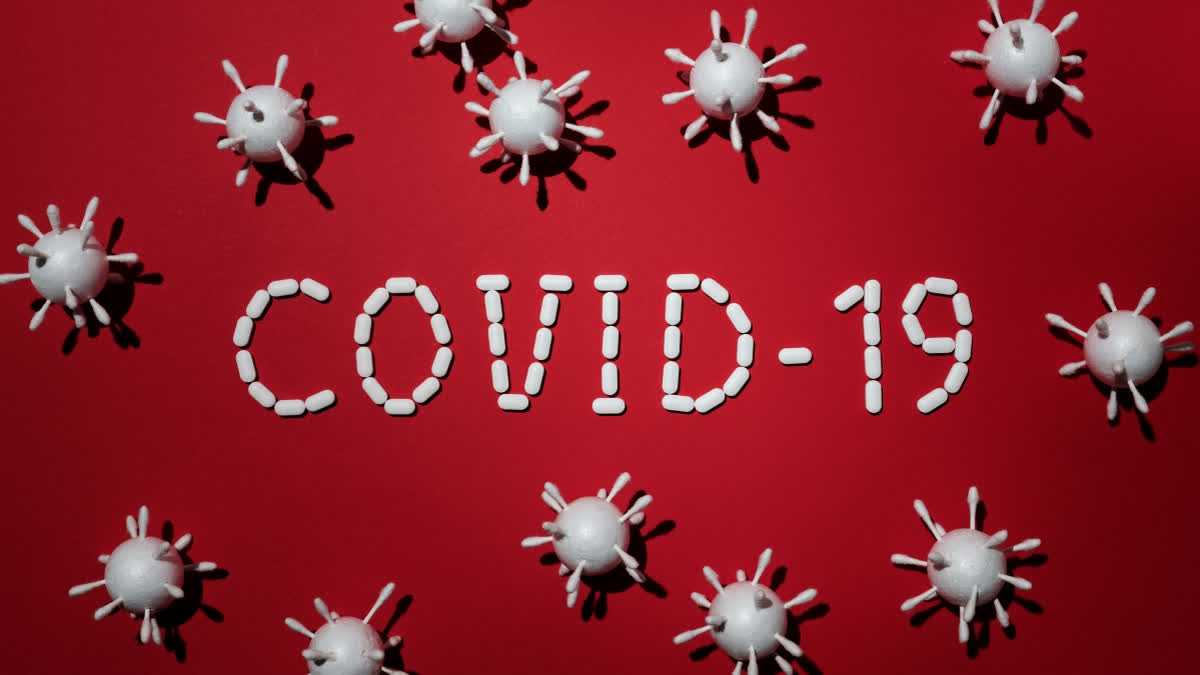New Delhi: Secondary bacterial pneumonia that does not resolve was a key driver of death in patients with COVID-19, according to a study which suggests that the viral disease does not cause a "cytokine storm" so often believed to cause mortality. The researchers found that secondary bacterial infection of the lung (pneumonia) was extremely common in patients with COVID-19, affecting almost half the patients who required support from mechanical ventilation. It may even exceed death rates from the SARS-CoV-2 viral infection itself, they said.
By applying machine learning, a form of artificial intelligence (AI), to medical record data, scientists at Northwestern University Feinberg School of Medicine in the US found evidence that COVID-19 does not cause a "cytokine storm," severe immune reaction in which the body releases too many cytokines into the blood too quickly.
Cytokines play an important role in normal immune responses, but having a large amount of them released in the body all at once can be harmful. "Our study highlights the importance of preventing, looking for and aggressively treating secondary bacterial pneumonia in critically ill patients with severe pneumonia, including those with COVID-19," said study senior author Benjamin Singer, an associate professor at Northwestern University Feinberg School of Medicine, US.
The study, recently published in the Journal of Clinical Investigation, found nearly half of patients with COVID-19 develop a secondary ventilator-associated bacterial pneumonia. "Those who were cured of their secondary pneumonia were likely to live, while those whose pneumonia did not resolve were more likely to die," Singer said in a statement.
"Our data suggested that the mortality related to the virus itself is relatively low, but other things that happen during the ICU stay, like secondary bacterial pneumonia, offset that," he added. The findings also negate the cytokine storm theory, said Singer, also the Lawrence Hicks Professor of Pulmonary Medicine at Feinberg.
"The term 'cytokine storm' means an overwhelming inflammation that drives organ failure in your lungs, your kidneys, your brain and other organs," Singer said. "If that were true, if cytokine storm were underlying the long length of stay we see in patients with COVID-19, we would expect to see frequent transitions to states that are characterized by multi-organ failure. That's not what we saw," he added. The study analyzed 585 patients in the intensive care unit (ICU) at Northwestern Memorial Hospital with severe pneumonia and respiratory failure, 190 of whom had COVID-19.
The scientists developed a new machine learning approach called CarpeDiem, which groups similar ICU patient-days into clinical states based on electronic health record data. This novel approach, which is based on the concept of daily rounds by the ICU team, allowed them to ask how complications like bacterial pneumonia impacted the course of illness. These patients or their surrogates consented to enroll in the Successful Clinical Response to Pneumonia Therapy (SCRIPT) study, an observational trial to identify new biomarkers and therapies for patients with severe pneumonia.
As part of SCRIPT, an expert panel of ICU physicians used state-of-the-art analysis of lung samples collected as part of clinical care to diagnose and adjudicate the outcomes of secondary pneumonia events. "The application of machine learning and artificial intelligence to clinical data can be used to develop better ways to treat diseases like COVID-19 and to assist ICU physicians managing these patients," said study co-first author Catherine Gao, an instructor in pulmonary and critical care medicine at Feinberg and a Northwestern Medicine physician.
"The importance of bacterial superinfection of the lung as a contributor to death in patients with COVID-19 has been underappreciated because most centres have not looked for it or only look at outcomes in terms of presence or absence of bacterial superinfection, not whether treatment is successful or not," said study co-author Richard Wunderink, who leads the Successful Clinical Response in Pneumonia Therapy Systems Biology Center at Northwestern. (PTI)



